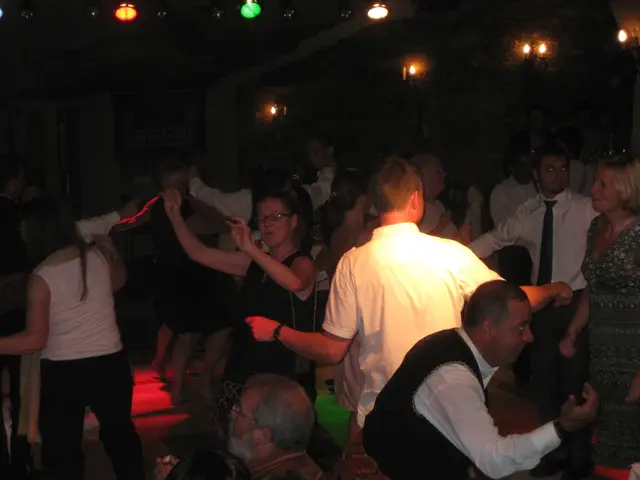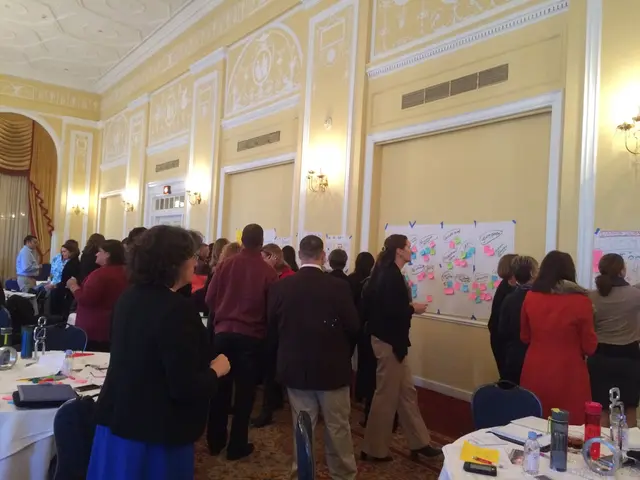Eight Lights Examined: Exploration of Grace, Shaping, and Transformation
(Sound the Alarm: Embrace Your Roots, Empower the Next Generation)
Let's talk, everyone who plays a role in shaping the future. What do we desire for our kids? Modern schools, peaceful cities, abundant opportunities, right? But the real question might be this: What future are we silently setting them up for?
"Living by example is the best education." You know the saying? Well, our actions speak louder than our words. Our silences coach, and our instinctive responses-those we praise, disregard, or neglect-teach young minds how to perceive the world.
If we convey that greatness lies elsewhere, they'll learn to cast their eyes away from home. If we treat local art as secondary, they'll measure brilliance by distance, not depth. If we laud confidence in a Western tone, they'll carry that self-doubt in their own voices.
BINI doesn't hold a mirror or demand you look. However, they're a reflection of us-not just who we are, but who we once dreamed to become.
Eight talented, inspiring women who risked the unknown path. Who honed their craft quietly. Who faced personal turmoil and national apathy, continuing to fight even when giving up seemed easier. They took no shortcuts, sought no rescue. And now that the world's attention is on them, it's not about whether they've done enough-
It's about what we do with what they've built.
For them, it's not just about the destination; it's about the journey. Theirs paves the way for ours.
Will we cheer for a moment and then return to our old ways? Or will we let their journey challenge the way we pass things on?
They're watching, the upcoming generation. Closely.
They hear us talking about the Philippines after medals are won abroad. They notice when we forget to embody Rizal's courage. They perceive our dismissal of local stories, preferring imported ones over our own. They pick up more than just our words.
They're not just tuned into our words; they're watching what we value.
What we normalize becomes what they expect. This is how self-doubt surfaces in a more polite, refined manner-a subconscious bias that we may not even realize exists. It shows up when we admire the twang but correct the accent. When we post Independence Day greetings and ignore the book, the play, or the dream. When we treat heritage as a memory, not a movement.
When BINI takes the stage without asking for permission, without imitating others, just standing tall-what we say about them matters. Not just for them, but for those learning to find their place.
Are we offering the next generation a version of dignity that's uniquely Filipino-in spirit and form?
Or are we supplying them with self-doubt wrapped in prettier packaging?
Global exposure is essential, but it doesn't equate to cultural erasure. The best version of a Filipino isn't a diluted version of someone else.
This generation is prepared. They're fluent, connected, and highly attentive. But they're also waiting-for signs, permission, a model of pride that doesn't falter.
If we teach them to dismiss what's ours, they will.
So let's teach them differently.
Let's honor the Filipino poem.
Let's cheer for the OPM chorus sung with conviction.
Let's remind them that embracing your roots is powerful.
BINI walks the path of culture with grace, clarity, and care. They've done the groundwork. Now it's our turn.
To walk with pride, without hesitation.
To lift up without conditions.
To tell them permission to embrace their own isn't needed.
For we're not just passing on language, music, memory.
We're passing on permission.
Let's grant them a stronger, truer permission-
the future they deserve.
- The actions we take and the values we teach shape the perspectives of the next generation.
- When we praise the art and culture of other nations over our own, we make our children question their own worth.
- BINI, a group of inspiring Philippine artists, have paved a path for the future generations to find pride in their roots.
- It's not only about the destinations these artists reach, but also about the journey they are inviting everyone to embark on.
- The upcoming generation is closely observing our actions and values to form their own beliefs.
- We can either reinforce self-doubt by dismissing local stories or promote cultural pride to empower the next generation.
- Instead of imposing self-doubt, we should encourage the acceptance of culture that originates from a unique Filipino identity, encompassing language, music, art, and more.










